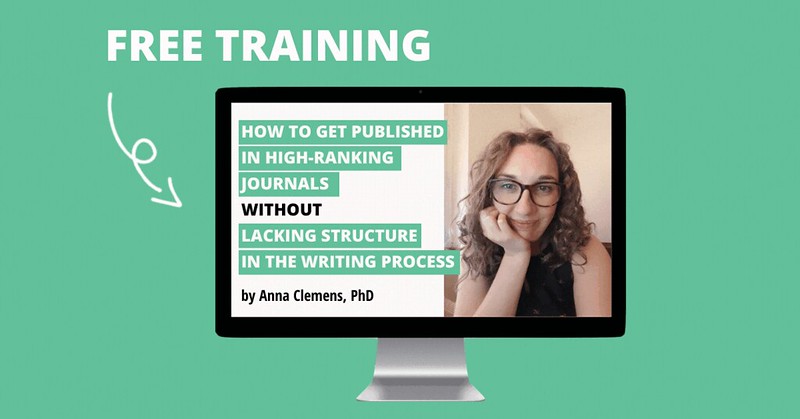The title of your research paper is your shop front. If it doesn’t appeal to your reader they won’t read further. Here are 10 common mistakes I see researchers make when they choose a title for their research paper. Make sure to not be one of them!
How many references did you discard after reading the title the last time you made a literature search? And how often have you wasted time because the paper you retrieved wasn’t about what it seemed to promise? Exactly…
And think about this: When a journal editor assesses your paper, they are also likely to read the title first. So, that’s your chance to make a first impression. Surely, you don’t want to confuse, or — even worse — annoy them.
How to write a title for a research paper: Mistakes to avoid
In the Researchers’ Writing Academy, our academic writing online course, we teach researchers how to write an effective title for a research paper and give feedback. Here are the ten most common mistakes I found researchers make in the titles of their research papers:
1. The title doesn’t describe the main result of the paper
Different from headlines in magazines and newspapers, the title of a research paper isn’t as much a teaser. Your reader wants to know what exactly you added to the field. It isn’t enough to just give them hint about the general topic area.
For this, it is important to know your main message. In fact, this is crucial for the whole paper writing process and is one of the very first steps of the system for writing papers that we teach inside the Researchers’ Writing Academy.
You might also be interested to know that papers with titles that describe the result are more likely to get picked up by the press or discussed on social media.
2. The title contains too much detail
This happens either when people want to cram in too much information, or when they are unclear about their main message. Sometimes authors also try to convey several key messages instead of focusing on the main one.

Does writing for a high-impact journal feel intimidating? Partly because you’ve never received proper academic writing training?
In this free online training, Dr Anna Clemens introduces you to her template to write papers in a systematic fashion — demystifying the process of writing for journals with wide audiences.
3. The title is too long
Long titles take longer to read and comprehend. A study found that papers get more views and citations if the title contains fewer than 95 characters.
4. The title is unspecific
If you provide a title that isn’t very specific, your reader won’t know if your article provides what they are looking for. Here, it counts to maintain a balance between being general enough for your target audience (see mistake 9) and specific enough to convey your key result (see mistake 1). Being specific in your title is also important for indexing purposes. So, make sure to provide the most important keyword(s) of your paper in the title.
5. The title contains question marks, hyphens and colons
By phrasing your title as a question, you merely present your research question instead of your key message. If people include a colon or hyphen in their title they often present too much detail (mistake 2) or they chose a title too broad and general (mistake 4). If you need more convincing, the study I cited earlier also found that papers receive fewer citations if they contain question marks, hyphens or colons.
6. The title is too noun-heavy
You only have seconds to tell potential readers what your study is about. So, it’s important to make it easy for them. If your title is full of nouns, it will take your reader longer to read and comprehend than if it contains a verb. Chances are your reader will just give up without even considering opening your paper. However, not all journals permit using active verbs (“Eating spinach strengthens the teeth” – I made this up). Therefore, be sure to check the journal guidelines (see also mistake 10).

7. The title contains unnecessary filler words
The goal is to make your title as short as possible (see mistake 2). Don’t waste the space with phrases such as “an observation of” or “a study of” or filler words such as “on…” (as in “On the energy efficiency of solar cells…”). Tell the reader instead what you observed or what your study found (see mistake 1). Be specific about your result (see mistake 4).
8. Using acronyms in the title
A general rule is to always spell out acronyms. If your reader doesn’t know what an acronym means they are more likely to discard your paper. Nobody wants to do extra research. That said, it’s worth knowing your target audience. Perhaps there are some abbreviations or acronyms that you can expect the readership of the journal to know?
9. The level of jargon doesn’t match the target audience
This is linked to the previous point (mistake 8). Always consider the audience of the journal you intend to publish in. If it is read by biologists, geologists, chemists and physicists all the same, you need to make sure they can all understand your title. Just be careful to not make your title too general, it should still reflect your specific result (see mistake 2).
10. The title doesn’t adhere to the journal guidelines
Something I always suggest my clients to do before they start writing is to check the journal guidelines. Most journals have either strict rules or recommendations on how long a title should be and what they should or shouldn’t contain. For example, Nature doesn’t permit any acronyms, punctuation, technical terms or active verbs.
There you have it. If you want to see examples of good research paper titles and get customised feedback on your title, join us inside the Researchers’ Writing Academy! Check if this online course is a good fit for you by taking the free training class. 👇


